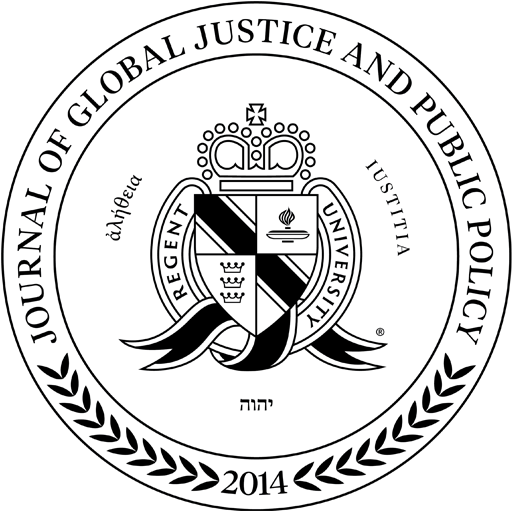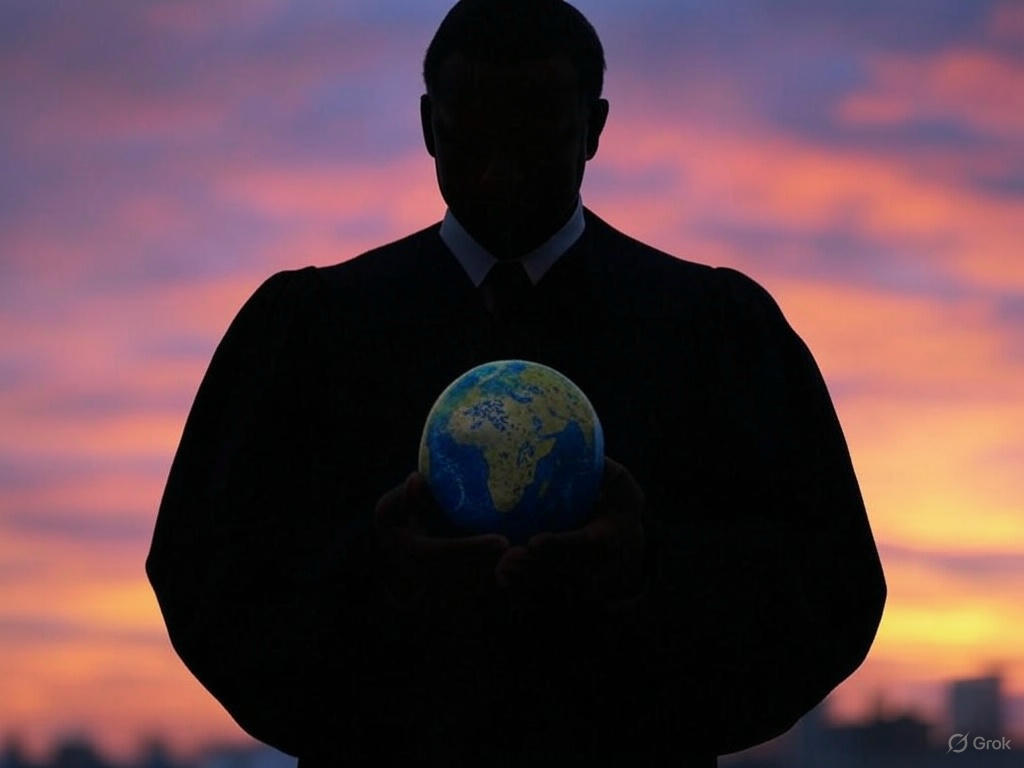Jennifer R. Breedon† | 2 Regent J. Glob. Just. & Pub. Pol. 389 (2016)
“[A]ny universal system should contain procedures not only to punish the wicked but [also] to constrain the righteous. It must not allow legal principles to be used as weapons to settle political scores.” 1
Henry Kissinger
“[T]he greater the power, the more dangerous the abuse.”2
Edmund Burke
INTRODUCTION
The purpose of this Note is to highlight the importance of state sovereignty in the midst of legal wars being waged by non-state actors. This Note begins by briefly explaining the concept of sovereignty as it relates to the maintenance of a legitimate global political system that respects the cultural differences and internal affairs of all states. Next, this Note provides brief explanations of universal (and extraterritorial) jurisdiction and the use of law to fight political battles with opponents, which this Note refers to as “Lawfare.” Finally, this Note lists the three gravest dangers that could result in the foreseeable future if the use of universal jurisdiction and Lawfare continues through nongovernmental organization (“NGO”) and non-state actor manipulation of the international legal system—namely the International Criminal Court (“ICC”). In order to give current relevance to the suppositions posited, this Note uses the sovereign State of Israel as the prototype to clearly display the use of such legal avenues, and how that poses a serious danger for other sovereign states. Although this Note does not devote much of its discussion to determining the morality of either side in the political issues surrounding Israel, it is important for the reader to understand the factual implications of Israel’s loss of sovereign decision-making. To begin the discussion, a brief overview of Israel’s modern history and some of the current issues causing conflict in the region is presented.
In 1933, the Conference of American States drafted the Montevideo Convention of the Rights and Duties of States that broadly listed the elements required for statehood recognition: a permanent population, a defined territory, a government, and the capacity to conduct international relations.3 Although methods of obtaining official state recognition are somewhat contested, it is widely accepted that once a state obtains the four elements above and is recognized by other states, then that state begins to enjoy the rights of political autonomy and sovereignty—the ability to determine internal affairs without fear that outside forces will interfere.4 That is, state sovereignty inherently resides with “the people [of that state] and is exercised through representative bodies . . . . [It] is essentially the power to make laws . . . .[T]o have sovereign power is to be beyond the power of others to interfere.”5 Again, under international law, “[e]ven where individual [and civilian] rights are concerned . . . states are responsible for respecting, protecting, and fulfilling the rights of their citizens, and if they don’t, they are answerable as states.” 6
Unlike legitimate states, which automatically enjoy rights and obligations, international organizations, individuals, NGOs, and others derive their rights and duties in international law directly from different instruments, such as an organizational document or charter.7 After World War II, the United Nations (the “UN”), through its member states, has continued to develop international law, determining the rights and obligations of the “state” (such as the duty to protect civilians during times of war)8 in order to prevent the type of conflicts seen in World War I and World War II, despite its heavy emphasis on maintaining state sovereignty.9 Recently, however, the laws prohibiting state overreach and aggression have failed to do the same with respect to the rising influence of NGOs and non-state actors who use the technological advancements of twentieth century communication to bring political differences with sovereign states to the forefront of international legal discourse.10 Moreover, although most states have a national court system and de facto jurisdiction to try its own nationals, NGOs have championed the concept of “universal jurisdiction” in efforts to prosecute state officials with whom NGO officers and affiliates disagree.11 States, which are obligated to pursue legal avenues to resolve disputes, recently have begun to use the ability of NGOs to bring claims in international courts as a method of committing warfare of a political and legal nature (i.e., Lawfare) against their political adversaries.12 To begin this discussion, it is important to retrace the historical roots of Israel and its modern-day statehood.
I. MODERN HISTORY OF ISRAEL
On July 24, 1922, the Council of the League of Nations passed the Mandate of Palestine (the “Mandate”), which codified the international community’s stance on the future of Palestine.13 The Mandate stated that Britain and the allied powers would be responsible for “the establishment in Palestine of a national home for the Jewish people . . . [and] that nothing should be done which might prejudice the civil and religious rights of existing non-Jewish communities in Palestine.”14 In its twenty-eight articles, the Mandate went on to list the steps that would be taken while Britain (the “Mandatory” or official state authority over Palestine) controlled the land.15 Among these provisions the most important was:
In the event of the termination of the mandate hereby conferred upon the Mandatory, the Council of the League of Nations shall . . . [ensure] that the Government of Palestine will fully honour the financial obligations legitimately incurred by the Administration of Palestine during the period of the mandate, including the rights of public servants [and uphold the rights and of all the peoples in the territory as well as the functions of governance over the land of Palestine].16
The purpose of the Mandate was to ensure respect for all people living in Palestine regardless of religion, race, or nationality. 17 It further sought to create a single government in Palestine (referred to as “the Government of Palestine”) that would continue the maintenance of the communities established in Palestine once the Mandate expired and Britain relinquished control.18 The Mandate, therefore, sought to ensure that a single government for the entire area was created that would respect the rights of all peoples living in the territory, and would include a “national home for the Jewish people.”19 Once the land was turned over to a legitimate governing authority, it would be recognized as the representative government of the land of Palestine.20 Shortly thereafter, the Montevideo Convention established that a representative government was one of the four elements necessary in order for the recognition of legitimate “statehood” under international law.21
† B.A. 2012, Georgia State University; J.D. 2015, Regent University School of Law.
1 HENRY KISSINGER , DOES AMERICA NEED A FOREIGN P OLICY? 275 (2001).
2 EDMUND BURKE , THE BEST OF BURKE 363 (Peter J. Stanlis ed., 1963).
3 Montevideo Convention on the Rights and Duties of States art. 1, Dec. 26, 1933, 49 Stat. 30971; 165 L.N.T.S. 19 [hereinafter Montevideo Convention].
4 See Oppenheim’s International Law (Robert Jennings & Arthur Watts eds., Thomson Reuters/Foundation Press 2010) in THE INTERNATIONAL LEGAL SYSTEM 208, 208–209 (Robert C. Clark et al eds., 6th ed. 2010) [hereinafter INTERNATIONAL LEGAL SYSTEM]; see also Aaron Kreuter, Note, Self-Determination, Sovereignty, and the Failure of States: Somaliland and the Case for Justified Secession, 19 M INN. J. INT’ L L. 363, 365–66 (2010).
5 Sovereignty, CORNELL U.: LEGAL INFO. INST., https://www.law.cornell.edu/wex/sovereignty (last visited Mar. 25, 2016).
6 INTERNATIONAL LEGAL SYSTEM, supra note 4, at 500.
7 See Grant L. Willis, Security Council Targeted Sanctions, Due Process and the 1267 Ombudsperson, 42 GEO. J. INT’L L. 673, 706 (2011).
8 Protocol Additional to the Geneva Conventions of 12 August 1949, and Relating to the Protection of Victims of Non-International Armed Conflicts art. 13, adopted June 8, 1977, 1125 U.N.T.S. 609, 1991 A.T.S. 29, 16 ILM 1391 (entered into force Dec. 7, 1978)[hereinafter Protocol II]. Protocol II also contains a provision related to state sovereignty. Id. at art. 3 (demonstrating that the Geneva Convention drafters and state representatives feared that sovereignty of nations might be violated by allowing a legal justification for intervention in matters that are internal matters of a sovereign state).
9 See Press Release, General Assembly, Lessons of Second World War Must Continue to Guide United Nations Work, General Assembly Told During Meeting Marking Seventieth Anniversary, U.N. Press Release GA/11641 (May 5, 2015),
http://www.un.org/press/en/2015/ga11641.doc.htm (explaining that the purpose of the United Nations is to prevent the scourge of war for future generations); Press Release, General Assembly, Questions Related to State Sovereignty and Role of Security Council in International Peacekeeping Addressed During Assembly Discussion, U.N. Press GA/9629 (Oct. 7, 1999), http://www.un.org/press/en/1999/19991007.ga9629.doc.html (explaining that respect for state sovereignty is a building block of the United Nations); The Foundation of International Human Rights Law, UNITED NATIONS, http://www.un.org/en/sections/universal-declaration/foundation-international-human-rights-law/index.html (last visited Mar. 25, 2016).
10 See, e.g., KISSINGER , supra note 1, at 280–81 (noting that Amnesty International supported a complaint against certain NATO officials for actions in the Balkans); see also Anne Aly, The Media and International Relations, in ENCOUNTERS WITH WORLD AFFAIRS: AN INTRODUCTION TO INTERNATIONAL RELATIONS 348, 348 (Emilian Kavalski ed., 2015).
11 See ANNE HERZBERG , NGO MONITOR, NGO “LAWFARE”: EXPLOITATION OF COURTS IN THE ARAB -ISRAELI CONFLICT 9–11 (2d ed. 2010).
12 See id. at 11.
13 See Mandate for Palestine, League of Nations Doc. C529M.314 1922 VI (1922),
http://avalon.law.yale.edu/20th_century/palmanda.asp; Richard Wilner, Nationalist Movements and the Middle East Peace Process: Exercises in Self-Determination, 1 U.C. DAVIS J. INT’L L. & POL’Y 297, 320, 324 (1995). The Mandate was—and is—considered valid
international law. See id. at 320.
14 Mandate for Palestine, supra note 13, pmbl.
15 See generally id. arts. 1–28.
16 Id. at art. 28.
17 See Gal Asael, The Law in the Service of Terror Victims; Can the Palestinian Authority be Sued in Israeli Civilian Courts for Damages Caused by Its Involvement in Terror Acts During the Second Intifada?, THE ARMY LAW ., July 2008, at 9; see also Mandate for Palestine, supra note 13, art. 15.
18 See Mandate for Palestine, supra note 13, art. 28.
19 Id. pmbl.
20 Id. art. 2.
21 See Montevideo Convention, supra note 3, art 1 (highlighting the importance of the
provisions in the British Mandate requiring that the land in Palestine be turned over to a
legitimate government of Palestine).

